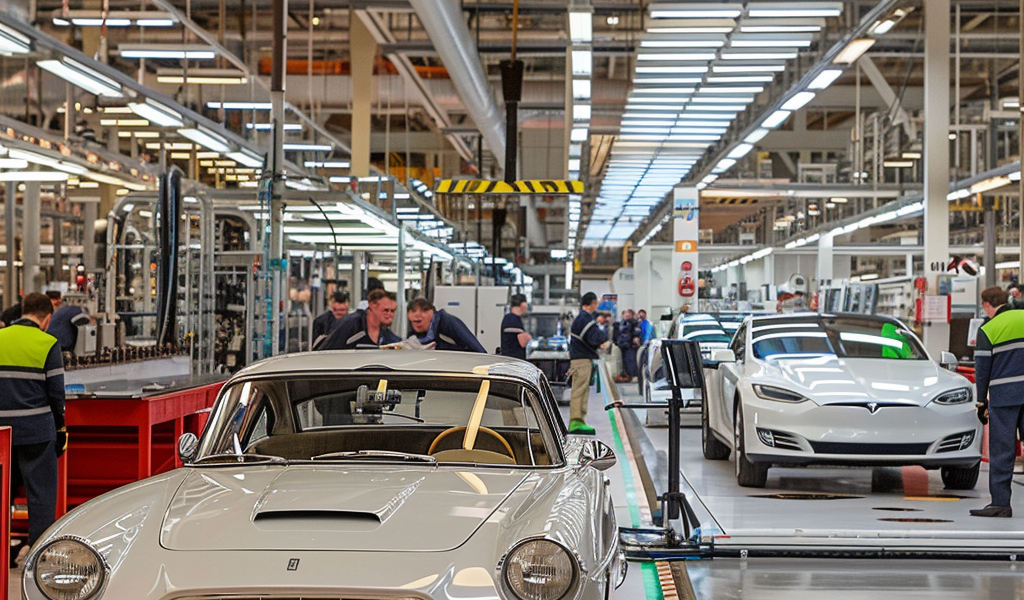Italy is set to take a significant step in the European Union’s ongoing debate about the future of internal combustion engine vehicles. This week, the Italian government will present a formal proposal aimed at advancing the timeline for the EU’s review of its ban on the sale of new internal combustion engine cars, which is currently scheduled for 2035.
Adolfo Urso, Italy’s Industry Minister, announced the initiative on Monday, emphasizing the need for a reevaluation of the EU’s Green Deal, which aims to address climate change and reduce pollution. Prime Minister Giorgia Meloni has been a vocal critic of the Green Deal, often labeling its proposals as overly ideological and disconnected from the realities faced by the automotive industry.
During a recent gathering of business associations and trade unions, Urso stated, “We believe it’s necessary to modify the direction of EU industrial policy. The automotive sector is the one where a change from the Green Deal is most required.” This sentiment reflects a growing concern among several EU member states regarding the potential economic impacts of a rapid transition to electric vehicles.
Italy’s proposal will first be reviewed by the national delegation of EU legislators on Wednesday. Following this, it will be presented at a meeting of EU industry ministers the next day. The urgency of the proposal stems from Italy’s desire to ensure that the automotive sector can adapt to the evolving regulatory landscape while also remaining competitive on a global scale.
In March 2023, the EU approved a pivotal law mandating that all new cars must have zero CO2 emissions by 2035, effectively phasing out diesel and petrol vehicles. This legislation leaves the market predominantly open to electric vehicles, which has raised concerns among various stakeholders, particularly in countries with robust automotive industries.
The EU Commission has planned a review of this legislation for 2026 to evaluate technological advancements in hybrid vehicles and their potential compliance with the 2035 emissions targets. Additionally, the current EU law includes an exemption for vehicles powered by e-fuels, which has been a point of contention in the discussions surrounding the future of transportation within the bloc.
Prime Minister Meloni’s administration has been actively advocating for a more flexible approach to the Green Deal, arguing that a hasty transition could jeopardize jobs and economic stability in the automotive sector. The Italian government is not alone in its stance; several other EU nations have expressed similar concerns, calling for a more nuanced approach to the transition towards greener technologies.
As Italy prepares to present its proposal, the automotive industry is closely monitoring the situation. Stellantis, a major player in the sector, recently announced that it is searching for a new CEO to succeed Carlos Tavares, who has been at the helm during a transformative period for the company. Stellantis is also laying out plans to enhance its business operations in the United States, indicating a broader strategy to adapt to changing market conditions.
The discussions surrounding the EU’s Green Deal and the future of internal combustion engines will likely continue to evolve as member states navigate the complexities of environmental regulations, technological advancements, and economic realities. Italy’s push for an earlier review of the combustion engine ban is just one of many developments in this ongoing dialogue, reflecting the tensions between environmental goals and economic interests within the EU.
As the automotive industry braces for changes, stakeholders are calling for a balanced approach that considers both the need for sustainable practices and the realities of market demands. The outcome of Italy’s proposal and subsequent discussions at the EU level will undoubtedly play a crucial role in shaping the future of transportation in Europe.





